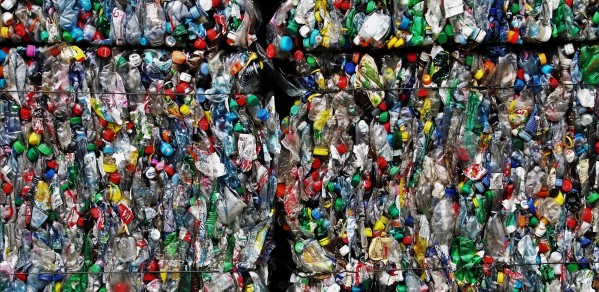
The UKRI have announced that 10 university-led research projects will receive £8 million in funding from the Industrial Strategy Challenge Fund. The investment is part of the Enabling Research competition in the Smart Sustainable Plastic Packaging Challenge (SSPP). It aims to help tackle plastic waste in the UK and aims to find solutions to existing issues with plastic packaging, reduce plastic pollution and unlock barriers to create fundamental changes in the industry.
The project will supplant the widespread use of fossil-derived plastics with materials made from naturally derived sources, such as wood (cellulose) and plants (sugars). These materials will degrade more easily in the natural environment, and result in no additional carbon being returned to the biosphere.
The Smart Sustainable Plastic Packaging from Plants (S2UPPlant) project led by Professor James Elliott (PI, Department of Materials Science & Metallurgy), Professor Paul Dupree (CoI, Department of Biochemistry ) and Dr Jonathan Cullen (CoI, Department of Engineering). By changing the genetics of the plants, or blending with other additives from food or agricultural waste, we can engineer materials with new functional properties, such as improved strength or better protection, resulting in a reduction in overall volume of plastic packing needed to keep food fresh.
The project will supplant the widespread use of fossil-derived plastics with materials made from naturally derived sources, such as wood (cellulose) and plants (sugars). These materials will degrade more easily in the natural environment, and result in no additional carbon being returned to the biosphere. By changing the genetic code of the plants, or blending with other additives from food or agricultural waste, we can engineer materials with new functional properties, such as improved strength or better protection, resulting in a reduction in overall volume of plastic packing needed to keep food fresh. By assessing the impact of switching to cellulose and plant-derived sugars, and making better use of waste products from food and forestry industries, we will explore the trade-offs between the benefits of plastic packaging and the impacts of its production and disposal. Success of the project will result in fulfilment of many of the UK Plastic Pact 2025 challenges and help to achieve the objective of establishing the UK as a leading innovator in smart and sustainable plastic packaging.
Professor James Elliott, Professor Paul Dupree and Dr Jonathan Cullen are a part of the wider Cambridge Creative Circular Plastics Centre (CirPlas), a UKRI funded programme. The Centre has supported a series of research projects and workshops for multi-disciplinary engagement on sustainable feedstocks and materials, manufacturing and recycling processes, tracking plastics material flows and waste and management.

